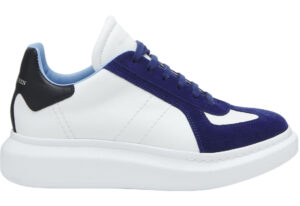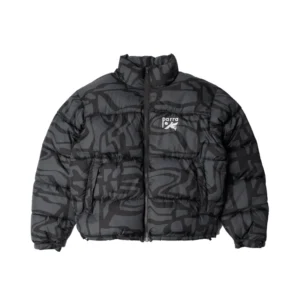Coachtopia, Coach’s sustainability-focused sub-brand, recently launched its latest collection, “The Wasted Parts”. This collection addresses Gen Z’s growing concerns around overconsumption and waste by utilizing excess materials and recycled components to create fashion-forward, yet eco-conscious products.
By prioritizing transparency and circularity, Coachtopia aims to align itself with Gen Z’s values, emphasizing resourcefulness and sustainability. This initiative not only offers stylish designs but also fosters dialogue on responsible consumption, making “The Wasted Parts” a notable exploration of sustainable luxury for a new generation.
Understanding Gen Z’s Consumption Paradox
Gen Z, characterized by its commitment to environmental and social causes, often finds itself caught between the desire for new, stylish products and the urgency to minimize environmental impact. Coachtopia’s “The Wasted Parts” collection directly addresses this paradox by focusing on reducing waste, both in production and product lifecycle.
The collection’s ethos revolves around reimagining what luxury can mean. By taking leftover materials from Coach’s mainline collections—such as unused leathers, trims, and fabrics—Coachtopia crafts new pieces that are both high-quality and eco-conscious. This approach challenges the traditional definition of luxury, which has often been synonymous with excess, and replaces it with one of resourcefulness and thoughtful consumption.
Giving New Life to the Unused
Each item in “The Wasted Parts” collection is a testament to the brand’s commitment to sustainability and creativity. The designs leverage a patchwork-like aesthetic, celebrating the beauty of diverse materials that would otherwise go to waste. This patchwork approach not only adds visual interest but also serves as a reminder of the collection’s core mission: turning potential waste into something purposeful and desirable.
Coachtopia’s use of vibrant color combinations and eclectic patterns makes each piece visually striking and unique, reflecting the spontaneity and authenticity that Gen Z values. The tactile quality of the recycled materials, combined with intricate stitching and craftsmanship, ensures that while these products may come from scraps, their construction and finish are far from second-rate.
Building Trust with Gen Z
One of the cornerstones of Coachtopia’s strategy is its focus on transparency. The brand actively educates its audience on how each item is made, offering detailed breakdowns of materials used and their sources. This openness fosters a sense of trust and shared values, which is essential for connecting with Gen Z consumers who prioritize authenticity and accountability.
In addition to transparency, Coachtopia emphasizes circularity in its product lifecycle. Many pieces in “The Wasted Parts” collection are designed to be disassembled, recycled, or upcycled into new products at the end of their life. This approach aligns with the broader sustainability goals of reducing waste and promoting a circular economy, where products are continuously repurposed rather than discarded.
Impression
Coachtopia’s “The Wasted Parts” collection is part of a growing movement within the fashion industry to address overconsumption and its environmental impact. As more brands begin to adopt similar practices, the concept of “waste” in fashion may shift from being seen as a problem to being seen as a valuable resource for innovation.
By offering a product line that resonates with Gen Z’s values and aesthetics, Coachtopia not only expands Coach’s appeal to younger consumers but also sets a precedent for how established luxury brands can respond to the changing demands of the market. The collection serves as a model for how high fashion and sustainability can coexist, paving the way for more brands to rethink their approach to design and production.
Coachtopia’s “The Wasted Parts” collection tackles one of the biggest dilemmas facing Gen Z consumers: the desire to engage with fashion while remaining mindful of its environmental consequences. Through innovative use of materials, transparent storytelling, and a commitment to circularity, the collection offers a compelling vision for the future of sustainable luxury.
As Coachtopia continues to evolve, its impact on the broader fashion industry will be one to watch. By turning “waste” into a valuable asset and engaging consumers in the process, Coachtopia is not just responding to the Gen Z consumption dilemma—it’s redefining what luxury fashion can and should be in a world that demands more responsibility and accountability from every purchase.
No comments yet.








